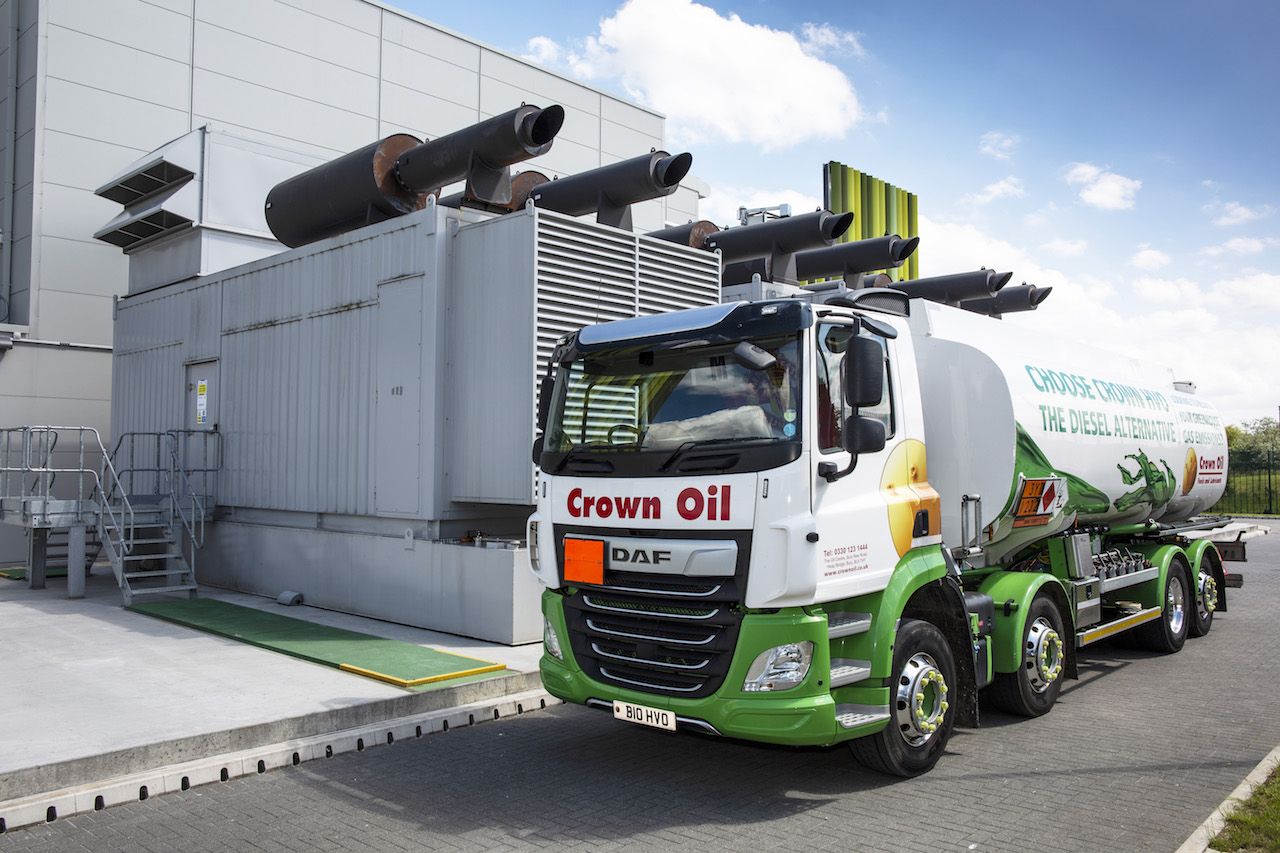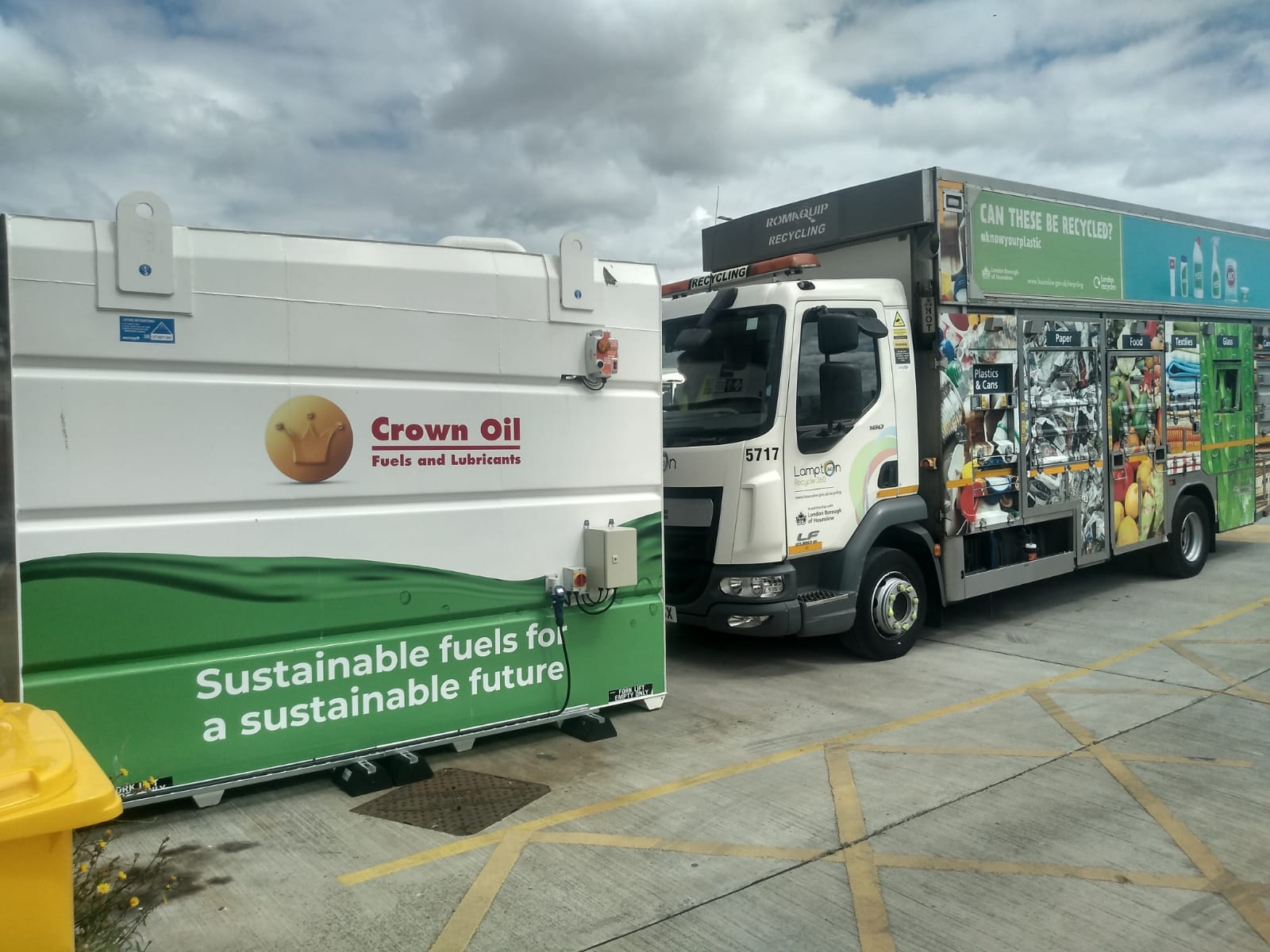 Kim Henson reports on a low emissions alternative to mineral/fossil based diesel fuel…
Kim Henson reports on a low emissions alternative to mineral/fossil based diesel fuel…
There is (almost) universal agreement that our planet is in trouble in terms of global warming and climate change, and that emissions resulting from the burning of fossil-derived fuels are unhelpful. Reducing ‘carbon footprints’ is therefore desirable and indeed necessary.
The more widespread use of electric vehicles is now inevitable (although they are NOT the whole answer, and bring with them their own challenges, in the form of whole life environmental costs, especially relating to battery production and eventual recycling). In the long term, hydrogen power is also set to increase in terms of available vehicles and the requisite infrastructure.
However, in addition there are alternative fuels being developed – and indeed already available – that can help to keep existing internal combustion engined vehicles running (as well as any future such vehicles), while minimising the use of, and requirement for, fossil-based fuels. Potentially, given its chance, this approach (in conjunction with some vehicle electrification), can help the U.K. in its mission to achieve ‘net zero’ target for greenhouse gas emissions by 2050. Indeed the use of such fuels could help speed the transition.
Recently I have written about the challenges ahead, and the development of synthetic ‘eFuels’ to enable vehicles with internal combustion engines (petrol and diesel, and in vehicles, ships and aircraft) to keep running, while using existing tanks, infrastructure and delivery vehicles. It is worth bearing in mind that it is not internal combustion engines per se that produce harmful emissions, but the fossil-based fuels on which they have traditionally been run.
CROWN OIL ‘HVO’ FUEL
Enter Crown Oil and their ‘HVO’ (standing for ‘Hydrotreated Vegetable Oil’) fuel. This is already available in Britain and is suitable for most diesel-powered vehicles and machinery (but NOT units powered by petrol).
I was interested to learn more about the company and its fuel, and I was already aware of HVO fuels being available in parts of the world other than Britain, indeed I understood that in some areas in Europe it could already be acquired from readily-accessible pumps (although this is not the case – yet at least – in Britain.
I therefore contacted Crown Oil for further information; here’s their HVO story…
What is HVO fuel and how is it beneficial?
HVO fuel is an alternative to fossil-derived diesel fuel, that is synthetically produced by hydrotreatment of vegetable oils or animal fats. It is fossil-free and also free from undesirable FAME (Fatty Acid Methyl Esters) components, and from metals. It is part of the paraffinic family of fuels, and said to be a high quality, clean liquid fuel that has zero sulphur or aromatic content.
The fuel is synthesised from waste fats and vegetable oils using hydrogenation and isomerisation (essentially that is to say, changing one compound to another with a similar chemical composition but bearing different properties), and is significantly less damaging to our planet than mineral-based diesel fuels.
Since it is a synthetic fuel, the molecules within HVO are consistent and uniform, allowing it to perform better in many areas (as outlined below) compared with conventional fossil-based diesel.
Crown tells us that their fuel is 100 per cent hydrocarbon (0% oxygen), meets the EN15940 standard for paraffinic fuels, also ASTM D975 19B (a standard specification for diesel fuel) and Fuel Quality Directive 2009/30/ EC Annex II. It is also said to be 100 per cent biodegradable.
The ‘renewable’ crops used to produce HVO fuel are said to be capable of being regrown when required without adversely affecting the environment or the natural ecosystem, and they do not result in deforestation.
It is claimed that the fuel, which benefits from improved combustion and filterability compared with normal mineral-based diesel, reduces harmful CO2 emissions by up to 90 per cent, also providing significant reductions in emissions of nitrogen oxides (NOx), particulate matter (PM) and carbon monoxide (CO).
The lower emissions are achieved without the need to carry out any engine modifications (which might be costly) to existing power units.
Based on a ‘heavy duty’ emissions test on a city driving cycle, and with a representative fleet including engines ranging from Euro II to Euro VI specifications, using Crown HVO fuel and compared with mineral-based diesel fuel, fine particulates (PM) were reduced by 30 per cent, hydrocarbons (HC) by 30 per cent, carbon monoxide (CO) by 25 per cent and nitrogen oxides (NOx) by 10 per cent. Such reductions help improve air quality, especially in urban environments.
As well as being cleaner-burning, Crown Oil says that their HVO is safer to handle, provides consistent performance all year round, and has a storage lifespan of up to 10 years – much longer than conventional diesel fuel – so there’s a reduced need for regular testing of the fuel. It is also compatible with existing traditional diesel fuel already in tanks and delivery systems etc; in other words it mixes freely.
Interestingly, since HVO fuels reduce particulate production during burning (compared with fossil-based diesel), engine oil ‘ageing’ (degradation) is reduced, in addition to the resulting benefits in air quality. This clean-burning nature of the fuel also helps to increase the lifespan of emission control systems, as well as improving engine cleanliness.
Another crucially important aspect of diesel engines is that they rely entirely on the fuel for lubrication of the delivery pump(s) and injectors (poor lubrication results in rapid wear in these finely-engineered components), and Crown Oil advises that the standard ‘High Frequency Reciprocating Rig’ or ‘HFRR’ test of their HVO fuel for lubricity resulted in a ‘best in class’ rating (compared with mineral-derived EN590 diesel fuel) of 350 microns.
Importantly too, Crown HVO is said to provide excellent performance at low temperatures, having a cetane number of up to 90 and a low cloud point of –32 degrees C, thus giving improved starting from cold, cleaner combustion, and a lower chance of waxing in extreme low temperatures.
Crown tells us that their HVO fuel has been comprehensively tried and tested and has already been approved by a large number of original equipment manufacturers. They say too that the Institution of Mechanical Engineers believes that sustainable low carbon fuels such as Crown’s HVO offers an immediate opportunity to accelerate the decarbonisation of road transport. This is seen as vital in the current scenario in which approximately 27 per cent of the U.K.’s greenhouse gas emissions are created by the transport sector.
A feather in the company’s cap has been winning the 2021 ‘Green’ award of the U.K. and Ireland Fuel Distributors (UKIFD).
The firm advises that today their HVO is commonly used in a wide range of applications, including commercial boilers, agricultural tractors and machinery, vessels working on inland waterways, railways, haulage and transport sector vehicles, portable generators at events, film productions and festivals, construction equipment and machinery, also industrial trucks and tankers.
CROWN’S OWN VEHICLE FLEET RUNS ON THEIR HVO FUEL
The firm leads by example in running its entire delivery fleet of vehicles on HVO fuel. They say that they are the first and only U.K. fuel supplier so far to do this.
The Crown Oil fleet comprises 25 DAF vehicles, all approved to run on HVO fuel without any technical adjustments and with no loss of performance. This is said to give a predicted saving of 3,080 tonnes annually (apparently equivalent to driving around the earth 51 times!).
At the moment, Crown Oil can supply businesses with ‘transportable fuel stations’ to enable firms to supply their own vehicle fleets. The tanks are supplied in capacities of 5,300, 10,000 or 20,000 litres, and feature a full-height lockable cabinet and secure hose access.
The firm tells me that they have just sponsored Bint Racing in their 2021 British Truck Racing Season where the team’s racing truck and pace truck were powered very successfully and exclusively on HVO fuel. This link gives more information:
MASSIVE REDUCTIONS IN GREENHOUSE GAS (GHG) CO2 EMISSIONS
Before asking a few questions of Crown Oil about their HVO fuel, I will leave this thought to ponder… It is claimed that for every 1,000 litres of fuel burned, Crown Oil HVO will produce just 195 kg GHG CO2, compared with 3.6 tonnes GHG CO2 from 1,000 litres of conventional, fossil-based diesel.
QUESTIONS, QUESTIONS…
Having studied the comprehensive information supplied to me by Crown Oil regarding their HVO fuel, there were still some questions in my mind, so I spoke with Jordan Baron, Business Development Manager at the firm, and his replies to my queries are included below…
- Kim Henson: “Is there any limit to the type and age of diesel engine that could happily run without problems on Crown HVO? For example, can it fuel cars and lorries, or just large commercial engines? Would it be okay for older diesel cars, perhaps earlier Vauxhalls, PSA models or Fords from the 1990s/early 2000s, as well as more recent vehicles?”
Jordan Baron: “Crown HVO has been tested in a wide variety of engines, ranging from large industrial units, vehicle engines (car, LGV and HGV), 2-stroke locomotive power units, a canal barge engine built in 1905 and a large segment of the engines used within construction machinery and there have not been any breakdowns attributed to the fuel. Whilst Crown HVO is a drop in replacement for diesel engines it does have a higher cetane number than diesel fuel, which can mean that top end performance can reduce on older mechanically injected engines. We have seen no effect on common rail, ECU governed engines where the software governing injection timing can compensate for the fuel’s cetane number. Furthermore, we advise caution in older engines and recommend seals and fuel lines are changed prior to HVO being used.”
- Kim Henson: “Are there any additional or different maintenance requirements for vehicles running on HVO?”
Jordan Baron: “No, the vehicle owner should stick with the recommended service intervals and schedules for the vehicles. We do however see that on service, engine oil is cleaner (due to reduced soot) DFP filters regenerate less frequently and Euro VI engines using SCR catalysts see a marked reduction in AdBlue useage.”
- Kim Henson: “Is it only supplied to commercial businesses and local authorities etc, or are there outlets around the country where private individuals as well as businesses can refuel their vehicles?”
Jordan Baron: “Crown HVO isn’t currently available for the domestic market, however the HVO market is rapidly increasing and as such we may find Crown HVO available in the forecourts in the not so distant future.”
- Kim Henson: “I see that you are able to provide ‘filling stations’, presumably only to large businesses, or would it be possible, for example, for an individual or group of individuals, to set up a supply centre for personal or group use?”
Jordan Baron: “Crown Cube tanks are in place to support commercial organisations transition to renewable fuels at this point.”
- Kim Henson: “I believe that HVO can also be used in some building heating systems; if this is the case, presumably different taxation regimes may apply?”
Jordan Baron: “On a technical level, it is suitable as a replacement for heating fuel with some small modifications, however it isn’t applicable for the same subsidies as non-road mobile machinery / road use, therefore the price won’t be a viable option for most users.”
THANKS
My grateful thanks to Jordan Baron and Crown Oil for the detailed insight into their HVO fuel.
If you would like to learn more, please contact the firm directly at: www.crownoil.co.uk
